Building students’ inferential reasoning: Statistics curriculum Levels 5 and 6
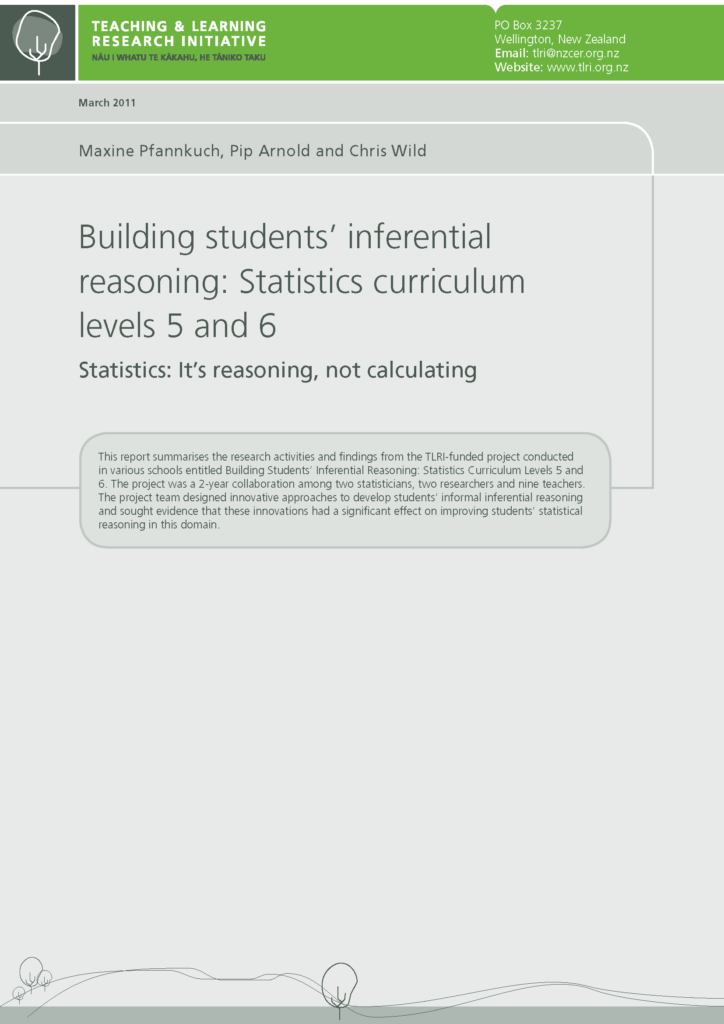
This report summarises the research activities and findings from the TLRI-funded project conducted in various schools entitled Building Students’ Inferential Reasoning: Statistics Curriculum Levels 5 and 6. The project was a 2-year collaboration among two statisticians, two researchers and nine teachers. The project team designed innovative approaches to develop students’ informal inferential reasoning and sought […]
Statistics is boring … because it makes you think!
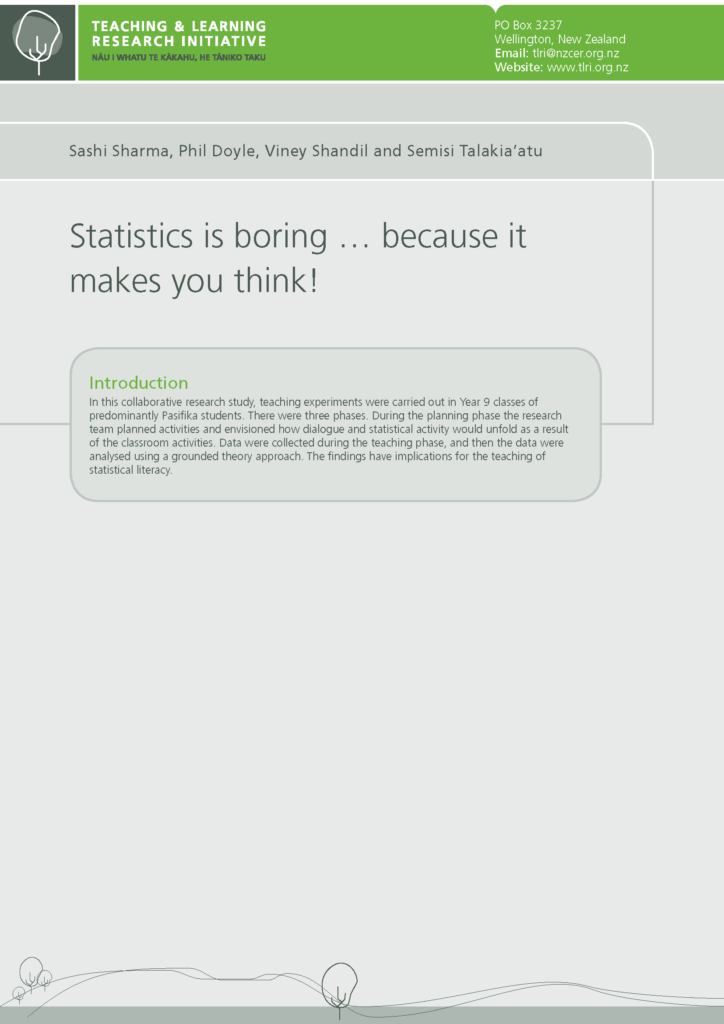
Introduction In this collaborative research study, teaching experiments were carried out in Year 9 classes of predominantly Pasifika students. There were three phases. During the planning phase the research team planned activities and envisioned how dialogue and statistical activity would unfold as a result of the classroom activities. Data were collected during the teaching phase, […]
CoRe: A way to build pedagogical content knowledge for beginning teachers
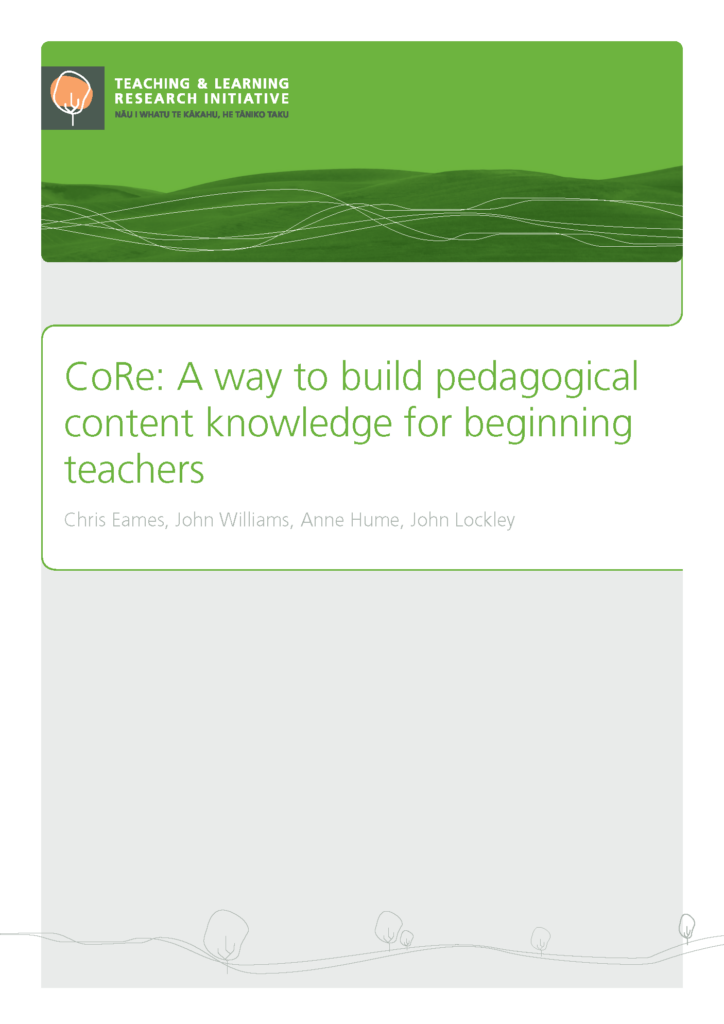
Research has shown that one of the factors which enables teachers to be effective is their rich pedagogical content knowledge (PCK). Beginning teachers need support to develop this PCK and recent research in the field has proposed a conceptual tool known as “content representations”, or CoRes, as a model for doing this. The study reported […]
Networked inquiry learning in secondary science classrooms
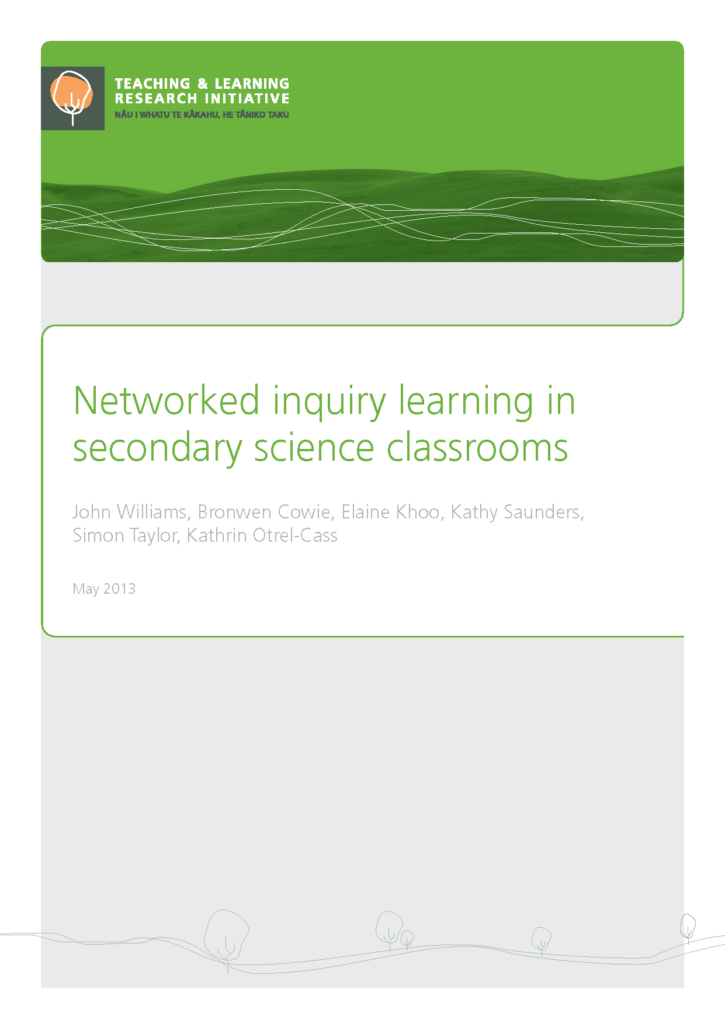
Introduction This research project aimed to understand and explore the ways electronically networked (e-networked) tools can support authentic science inquiry in junior secondary classrooms in order to address concerns about student engagement in science. Internationally claims are made about the potential for inquiry-based learning to address the challenges of relevance for the 21st century school […]
Literacy and e-learning: Mining the action research data
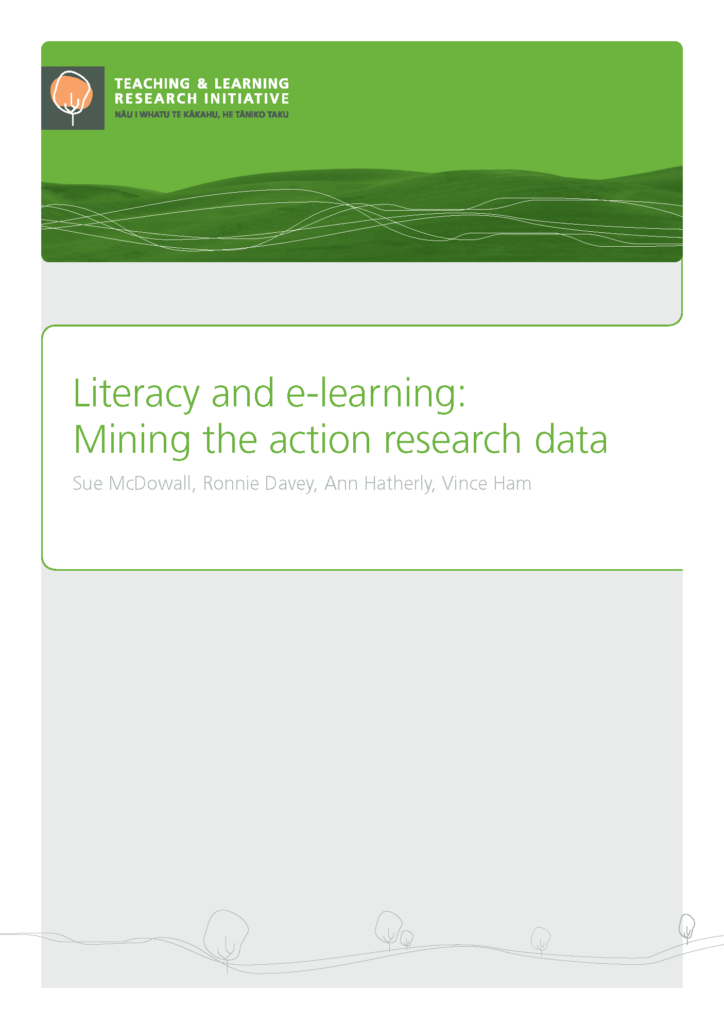
Introduction In this project, researchers and teachers (ECE, primary, and secondary) worked together to analyse unpublished data from a range of action research inquiries on e-learning to articulate, investigate, and build theory about the literacy learning that takes place in e-learning contexts. This summary report provides an overview of our cross-project analysis. The teachers’ case […]
Designing knowledge building communities in secondary schools
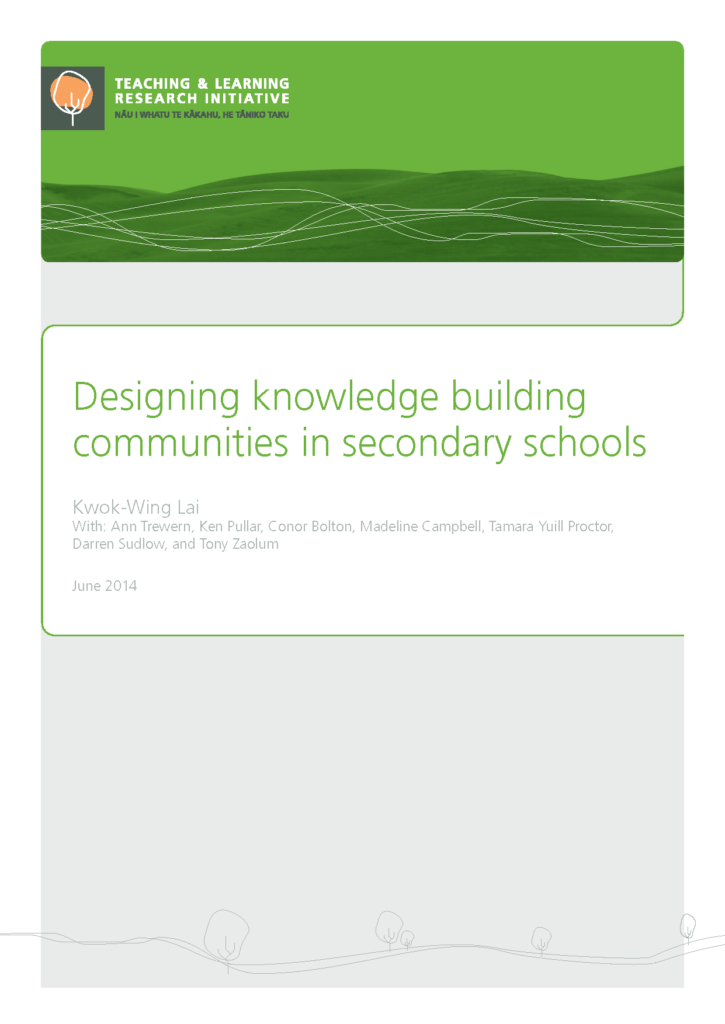
Introduction With the emergence of globalisation and the knowledge economy, it has become a priority for economically advanced countries to increase and democratise the innovative capacity of their citizens. In New Zealand, there is an urgent need to develop young people’s capacity to work creatively and innovatively with knowledge (Ministry of Education, 2007). This presents […]
School is out: Students’ experiences of non-traditional learning
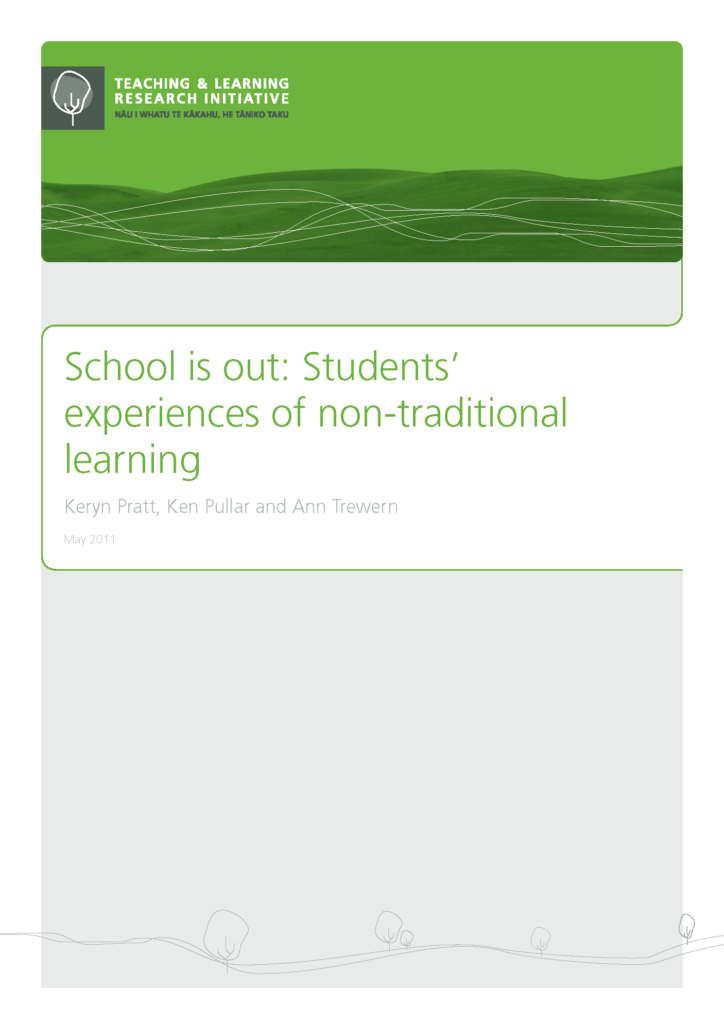
Introduction The experience of New Zealand school students is increasingly changing. In addition to their traditional schools students are participating in virtual classrooms and other forms of learning, such as classes through the correspondence School and vocational programmes. This study aims to extend previous research by looking at the experience of students in one regional […]
The Relationship Between English Language and Mathematics Learning for Non-native Speakers
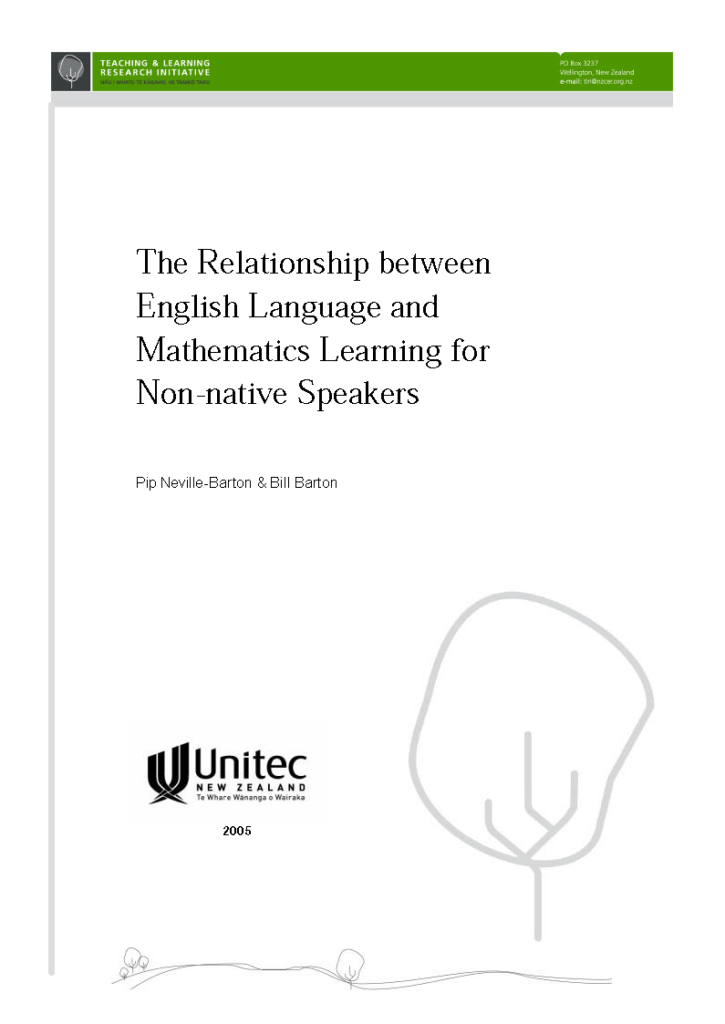
1. Introduction In recent years, New Zealand secondary schools and tertiary institutions have enrolled increasing numbers of students for whom English is an additional language (EAL students). There is, therefore, growing interest in the language requirements for successful study and in programmes that will assist these students. It is a common perception that students from […]
Mathematical relationships and practices: A view into Year 9 mathematics classrooms.
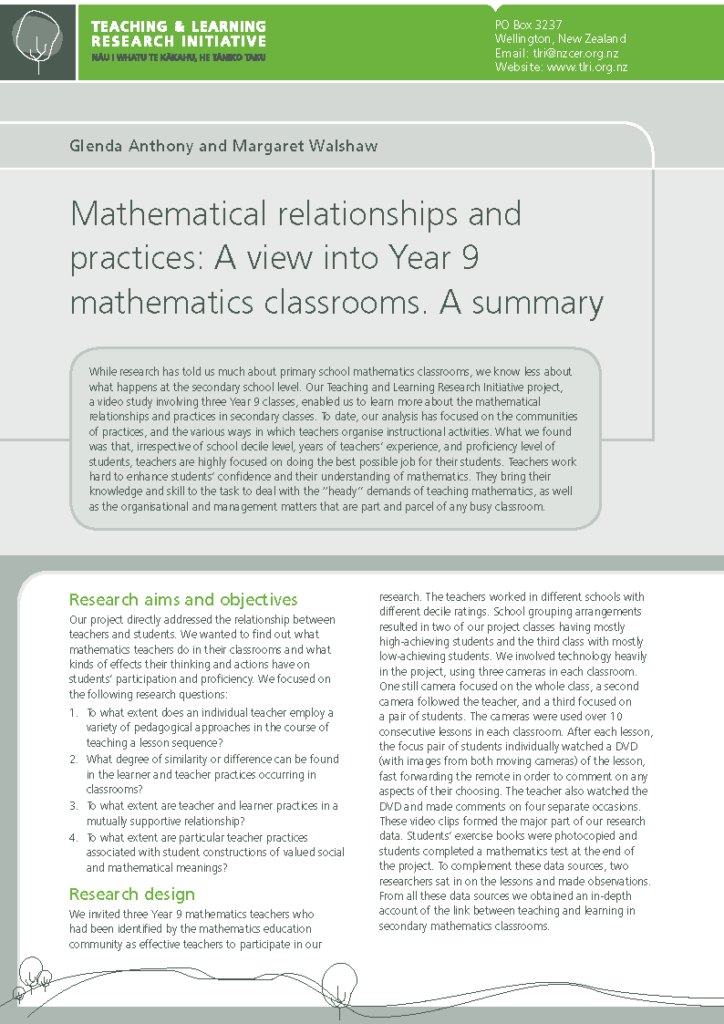
The pdf version of this document is formatted into a A4 pamphlet style While research has told us much about primary school mathematics classrooms, we know less about what happens at the secondary school level. Our Teaching and Learning Research Initiative project, a video study involving three Year 9 classes, enabled us to learn more […]
